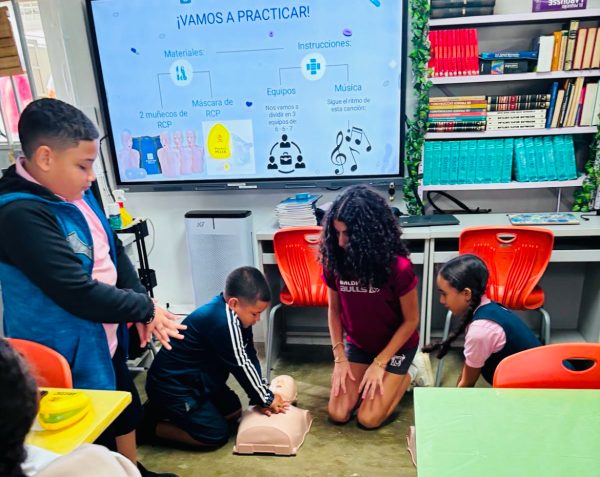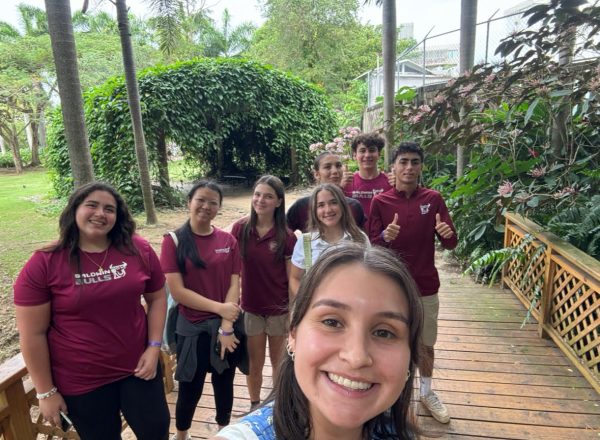COVID-19 Vaccine: What you should know
A few weeks ago, the U.S. Food and Drug Administration (FDA) approved two COVID-19 vaccines. The United States Government has already begun administering them to the public. Last week, the Centers for Disease Control and Prevention said that about 11.1 million people in the United States have received at least one dose of a COVID-19 vaccine, but that this was not the federal government’s plan. Here is everything you should know about these vaccines, how the federal government is and will be administering them to the public, and what happens after you are vaccinated.
The Vaccines
In the middle of December, the FDA approved a COVID-19 vaccine from the American biotechnology company Moderna, and Pfizer-BioNTech, a conjunction of an American pharmaceutical company Pfizer and a German biotechnology company BioNTech. The FDA approved the Moderna vaccine for people ages 18 years and older and the Pfizer-BioNTech vaccine for people ages 16 years and older. Both of the vaccines consist of two shots, given three weeks (Pfizer-BioNTech) or four weeks (Moderna) apart. Both are nearly 95% effective. The two vaccines use messenger RNA technology which contains molecular instructions for the cells in the human body. These instructions tell those cells to create a protein that creates an immune response to the protein on the surface of the coronavirus. Since the approval by the FDA of the two vaccines, many people have been questioning the side-effects of the vaccines,
and how quickly it took to develop these vaccines. The official side-effects of the Moderna vaccine listed by the FDA are pain at the injection site, tiredness, headache, muscle pain, chills, joint paint, and more. These side-effects typically lasted several days and were commonly reported. It is important to note that many of these side-effects are common for nearly all vaccines. The more serious side-effect which has not been common is having an allergic reaction to the vaccine, which can be treated. Most of these side-effects are a good sign. Saad Omer, the director of the Yale Institute for Global Health said the side-effects can be a sign of the activation of the immune response to COVID-19. Although the vaccines were developed rather quickly due to the emergence of the COVID-19 pandemic, they went through the same trial processes and tests as other vaccines, only more people put more time and money into developing these vaccines. The Moderna vaccine went through a clinical trial with around 30,000 participants and the Pfizer-BioNTech vaccine went through a randomized clinical trial of around 44,000 participants. The follow-up from these trials is shorter than it would be, however, this was necessary due to the rapidly rising COVID-19 cases. Aside from these two vaccines, more are being developed by many biotech companies around the world, such as the American company Novovax.
The Federal Government’s Plan
The Federal Government created a plan to distribute the two vaccines across America. The CDC recommended certain people in the United States get the COVID-19 vaccine before others. It is also called a ‘line’ of people who are going to get the COVID-19 vaccine. Phase 1a or the first people in this line are health care personnel and long-term care facility residents. Phase 1b are frontline essential workers and persons aged over 75 years. Phase 1c consists of persons aged 65-74 years, persons aged 16-64 years with high-risk medical conditions, and essential workers not recommended for vaccination in Phase 1b. Phase 2 is all persons aged over 16 years who were not previously recommended for vaccination. Pfizer-BioNTech has agreed to provide 100 million doses to the United States, and the federal government will purchase an additional 100 million doses of the COVID-19 vaccines. The United States will also be purchasing 200 million doses of the vaccine from Moderna. However, despite 31.1 million doses have been distributed, only around 12.2 million shots have been administered, according to the Centers for Disease Control and Prevention. President-elect Joe Biden believes that the pace is too slow and wants to use FEMA and the National Guard to build coronavirus vaccine clinics across the U.S. He also has organized a coronavirus task force that will have an important role in his administration which begins January 20th.
After Vaccination
After you get the vaccine, you cannot act as if everything is normal. Firstly, you have to wait until the majority of the rest of the world has received the vaccine and has herd immunity to begin to go places without a mask and resume life as normal. Secondly, the vaccine is not 100% effective. Although it is rare, vaccinated people could get coronavirus again. This is to be expected as vaccines are never 100% effective. Thirdly, the vaccines do not provide protection straight away. According to Dr. Preeti Malani, the COVID-19 vaccine takes about two weeks for the immune system to begin creating antibodies to block coronavirus; in other words, the vaccine will be effective about five or six weeks after the first dose is administered. Finally, the COVID-19 vaccine might prevent you from being infected by COVID-19, but it is not certain that it prevents people from transmitting the virus to others. To know for sure, more research is needed. Overall, life will most likely not go back to normal for a couple of years at least. Even vaccinated people must be careful at all times. Although the process is slow, the two different COVID-19 vaccines are being distributed across the United States to different people. It is important to remember that although you will get the vaccine, everyone must remain cautious at all times.
Sources:
https://www.aarp.org/health/conditions-treatments/info-2020/coronavirus-vaccine-research/
https://www.healthline.com/health-news/whos-next-in-line-for-the-covid-19-vaccine
https://www.cdc.gov/mmwr/volumes/69/wr/mm695152e2.htm?s_cid=mm695152e2_w
https://www.cnbc.com/2021/01/15/biden-to-deploy-fema-national-guard-to-set-up-covid-vaccine-
clinics-across-the-us.html
https://www.fda.gov/emergency-preparedness-and-response/coronavirus-disease-2019-covid-1
9/moderna-covid-19-vaccine
https://www.fda.gov/emergency-preparedness-and-response/coronavirus-disease-2019-covid-1
9/pfizer-biontech-covid-19-vaccine
https://apple.news/AM_Fh-fPCQaWBRpGt4wdxHQ
https://apple.news/A5beCdyCYQzeuf5ZHSmt_Dg
Your donation will support the student journalists of The Baldwin School of Puerto Rico. Your contribution will allow us to purchase equipment and cover our annual website hosting costs.
Hi! My name is Daria Figlus and I am in 12th grade. I was born in Chicago, lived in Ukraine, and moved to Puerto Rico nearly five years ago. I have been...





